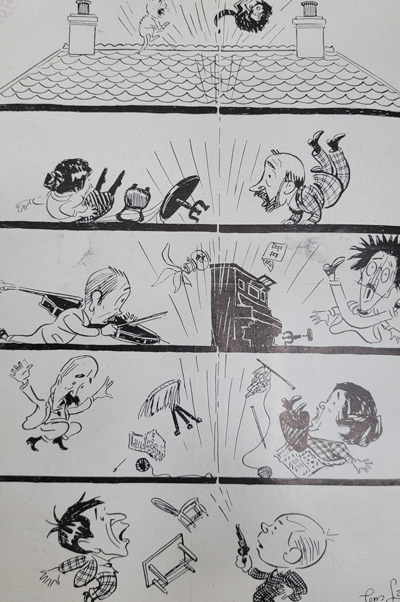Unemployment problem is not the cause of ‘Irregularism’ in Ireland, says Cosgrave
Dublin, 21 October 1922 – The President of Dáil Éireann, W.T. Cosgrave, has dismissed suggestions that armed revolt and ‘Irregularism’ were a consequence of high unemployment.
He was responding to comments made in the Dáil yesterday by a number of TDs that there would be fewer Irregulars if there was more work.
Thomas Nagle, a Labour Party TD from Cork, informed the Dáil that he personally knew of ‘lots men in the ranks of the Irregulars in parts of Southern Ireland who have had no opportunity of working, for the past 18 months or two years, and have no chance now of getting a job if they come back to civil life.’
President Cosgrave dismissed the idea that unemployment caused Irregularism, insisting, rather, that it was the other way around. Cosgrave said that examples abounded of men who left well-paid employment to take up roles in the anti-treaty forces. ‘There is an Irregular in Mountjoy at the present moment who had a position in the Dublin Corporation of £1,000 a year,’ he told the Dáil. ‘I suppose it is not enough for him. He is now an unemployed Irregular. There is another Irregular there who was a messenger in my department. He was fairly well paid at, I think, £3 a week. But I suppose that was not enough. There is another one of them who had over £6 a week, and so on.’
During the debate, Labour Party deputies urged the government to bring forward measures for dealing with the unemployment problem. Among the measures proposed was that in urban areas those without jobs should be encouraged to attend technical classes and given increased benefit.
President Cosgrave was opposed to any such measures for reasons of practicality and principle. For a start, the government, he said, had no money to fund such schemes. He added that the desire to make the community dependent on the government was wrong and false.
Minister for Home Affairs, Kevin O’Higgins, told the Dáil that there was, at this point in time, ‘no spirit of work’ in the country, nor was there any of the spirit of industry that was to be found in continental countries. All there was, he suggested, was ‘a desire to live by raiding one another's houses, and that cannot last indefinitely.’
British Pathé footage of the ongoing conflict in Ireland 1922. The Dáil has heard claims that anti-treaty forces have been strengthened by the want of employment opportunities
[Editor's note: This is an article from Century Ireland, a fortnightly online newspaper, written from the perspective of a journalist 100 years ago, based on news reports of the time.]





















